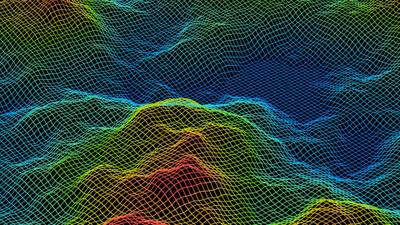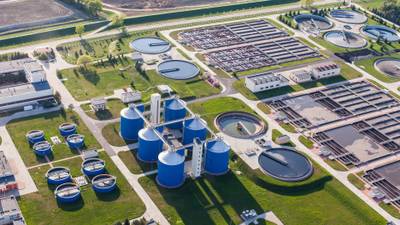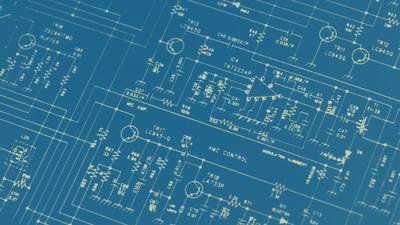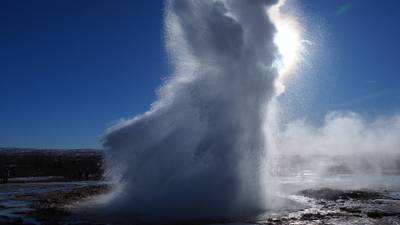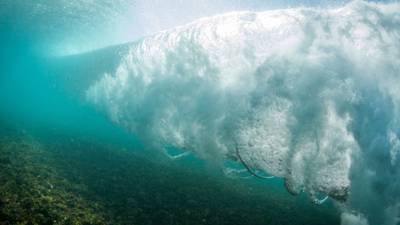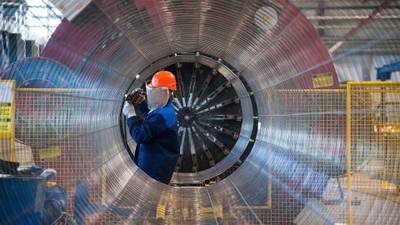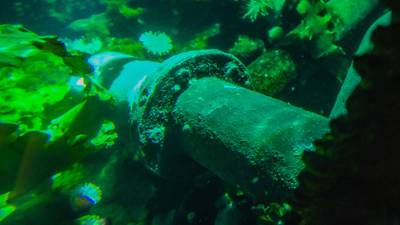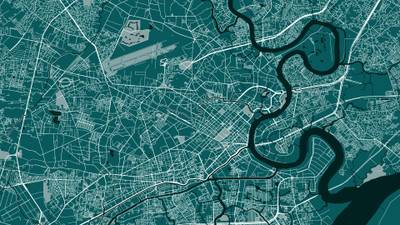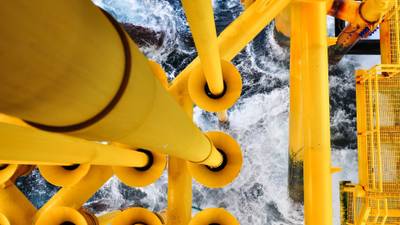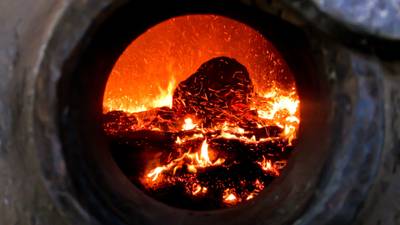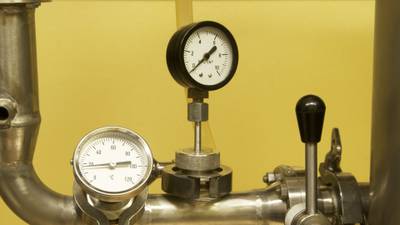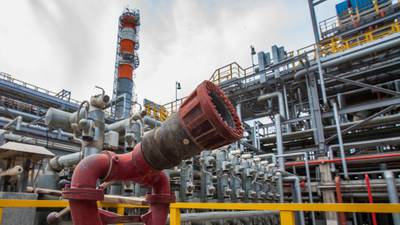Join an oil and gas chemistry course you can study flexibly online.
Study the chemistry of present and possible future technologies for oil and gas production.
In this Masters-level online short course, you’ll learn about:
- current distillation technologies used by industry
- the different chemical processes that take place in an oil refinery,
- the properties of different products produced by a refinery, and
- emerging alternatives for natural gas utilisation and how these relate to existing refinery product streams.
Who can join this online oil and gas chemistry course?
This distance-learning course is for those with a background in Engineering, Chemistry, or Physics.

Build credits towards an accredited Masters degree
This online course is part of accredited:
You can use the credits you earn on this short course towards this accredited MSc qualification.
What you’ll study
In this course, you’ll gain an overview of chemistry in the oil and gas industry.
The course includes three key components where chemistry is fundamental to upstream and downstream oil and gas transport and processing.
You’ll learn about:
- general pipeline flow assurance
- chemical strategies for managing flow assurance
- processes involved in converting oil to valuable fuels and chemicals, including distillation, coking, cracking, hydrotreatment and reforming.
The course covers the following topics:
Brief review of key chemical concepts
- energy and thermodynamics
- reaction rates
- structure and reactivity of different classes of compounds and materials.
Oil refining
- the chemical, physical and catalytic processes involved
- types of reactors employed, and
- range of products formed.
Natural gas utilisation
- the chemistry of current technologies and future possibilities.
By the end of this course, you’ll be able to...
-
Discuss the emerging alternatives for natural gas utilization and how these relate to existing refinery product streams.
-
Calculate the number of theoretical stages for distillation using the McCabe-Thiele method.
-
Describe the chemistry involved in the purification of natural gas and the conversion of natural gas to liquid products.
-
Discuss current technologies for natural gas utilisation and future options for natural gas conversion.
-
Describe the different chemical processes taking place in an oil refinery, and the properties of the different products produced by a refinery.
-
Describe the operational differences between coking and cracking processes, the types of coke produced, and their application domains.
-
Understand the chemistry and need of alkylation and reforming process within a refinery in relation to improving yields and characteristics of end products.
-
Explain the differences, similarities, and applications of products of hydrotreating and hydrocracking technologies, as well as the catalysts used.
-
Describe the structure, components and functionalities of modern FCC catalysts.
-
Identify the current distillation technologies used by industry.
-
Understand the main thermodynamic fundamentals relevant to distillation processes.
-
Summarise the main elements for crude oil fractioning.
Why choose the University of Aberdeen for oil and gas chemistry courses?

Earn as you learn
We fit around full-time work, so you can earn qualifications while you keep earning a salary.

You’re in expert hands
We’ve been training world-class engineers for decades and delivering online learning for over 20 years.

20% alumni discount
University of Aberdeen alumni get 20% off this online course.
How you’ll study
Online learning
This distance-learning oil and gas chemistry course is delivered flexibly online.
You can learn anywhere, with no need for a study visa, and manage your hours to suit you.
Your teaching
This course is taught at Masters level.
Teaching is delivered through MyAberdeen, our online Virtual Learning Environment (VLE). It holds all the materials, tools and support you’ll need in your studies. Take a look around MyAberdeen.
You can access your learning materials on computer, smartphone and laptop, 24 hours a day. You’ll find a range of resources at your fingertips, including:
- video lectures
- slide shows
- reading materials
- the online resources of our award-winning Sir Duncan Rice Library.
Your tutors
You’ll learn from a team of academics from our School of Engineering.
This course is assessed entirely online.
You’ll be assessed via:
- a timed online test worth 20% of your final grade, and
- a timed online test worth 80% of your final grade.
The course totals approximately 150 hours of study and assessment time. That’s around 10 – 15 hours per week.
This is an indicative guide to the time required for a typical student at this level to achieve the learning outcomes.
You can largely set your own study hours each week to cover the materials. MyAberdeen is available 24/7, so you can log in and study when it suits you.
Activities with deadlines
There will be some activities scheduled for fixed times, such as assessments with deadlines or meetings with your tutor. But otherwise, you can access and work through the course at your convenience.
Our first-class support structure will ensure that you aren’t alone in your studies. You’ll have contact with your coordinator via email, MyAberdeen and Microsoft Teams. You can use social media and discussion boards to chat with your fellow students too.
We provide a wide range of services to support you in your studies and beyond:
- Careers and Employability Service
- Disability support
- IT support
- Library support
- Student Support Service – help with finances, stress, wellbeing and non-academic issues
- Student Learning Service – study support, with advice sessions available via phone or Skype
- Aberdeen University Students’ Association (AUSA) – run by students for students
- Toolkit – clever apps and free training that can make your study life easier
Wherever you are in the world, you’ll feel part of our very special Aberdeen learning community.
Your course coordinator
Dr Panagiotis Kechagiopoulos
Panagiotis is a Reader in Chemical Engineering at the University of Aberdeen. His research interests lie in the optimisation of chemical engineering processes for the efficient utilisation of energy sources.
View Panagiotis’ profileWhere this will take you
Towards a Masters
You’ll earn 15 credits at Masters level (SCQF Level 11) with this course. You can use these credits towards our:
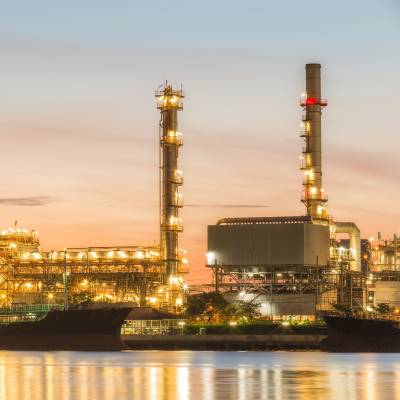
Accredited Masters in Oil and Gas Engineering
Join an accredited online Masters degree delivered from the Energy Capital of Europe. Master the skills and technologies you need to pursue a career in the upstream and downstream oil and gas industry.
View MSc Oil and Gas EngineeringCareers
This course will provide you with a theoretical and practical grounding in the key technologies to pursue careers in the downstream oil and gas industry.
Continuing Professional Development (CPD)
Your employer or professional institute may recognise this course for CPD hours. Talk to your employer or institute to find out more.

Free career support
Access our free careers service while you study.
- 1:1 appointments
- CV checks
- Interview prep
- Job opportunities
Entry requirements
Entry requirements
We welcome students from all over the world.
This course has no formal entry requirements. You do not need to provide proof of your qualifications.
But you do need to check the entry guidance above to understand the level of teaching delivered, to decide if this course is right for you.
If you do not have qualifications from the UK, check the equivalent teaching level for your country.
Visa requirements
You do not need a student visa to study online with us.
English language requirements
Teaching is delivered in English.
You do not have to provide proof of your English language skills to join this course. But we want to make sure that you can use English well enough to study successfully.
Recommended level of English
For this course, we recommend the following level of English language proficiency.
These are our Postgraduate Standard requirements, and these are minimum scores.
IELTS Academic, IELTS UKVI Academic, and IELTS Online (not IELTS Indicator or IELTS General Training)
- 6.5 overall
- 5.5 for listening, reading and speaking
- 6.0 for writing
TOEFL iBT and TOEFL iBT Home Edition
- 90 overall
- 17 for listening
- 18 for reading
- 20 for speaking
- 21 for writing
- TOEFL DI code is 0818
Cambridge English: B2 First, C1 Advanced, or C2 Proficiency
- 176 overall
- 162 for listening, reading and speaking
- 169 for writing
LanguageCert Academic/LanguageCert Academic SELT
- 70 overall
- 60 for listening, reading and speaking
- 65 for writing
LanguageCert International ESOL B2 Communicator (Written and Spoken) – Online / In-centre
- Overall High Pass
- 33 for listening, reading and speaking
- 38 for writing
Oxford ELLT Digital – English Language Level Test Online
- 7.0 overall
- 5.0 for listening, reading and speaking
- 6.0 for writing
PTE Academic (online test not accepted)
- 62 overall
- 59 for listening, reading, speaking and writing
For full information about language requirements, see our English Language Requirements page.
You will need access to:
A computer (PC, laptop or Mac) operating on either:
- Windows 10 or later
- macOS 10.15 (Catalina) or later.
Most teaching materials are smartphone- and tablet-friendly. But we recommend a proper laptop or desktop for completing assignments comfortably.
Reliable internet access
We recommend:
- a wired connection
- a minimum download speed of 2 Mbps so you can take part fully in live sessions.
Speakers or headphones
- We recommend a headset with built-in microphone and earphones if you’re likely to study in an environment with background noise.
- A webcam is optional, but you may like to use one for some interactive sessions.
Software
We’ll give you access to Office365 applications. This means you can use online versions of Microsoft Word, Excel, and PowerPoint and install these programs on up to five personal devices.
If your course requires specialist software, we’ll provide you with access to this and a licence that lasts throughout your studies.
See our detailed IT requirements for more information.
When you study with us, you can expect a first-class support structure so that you’re never alone in your studies.
But learning online does mean you have to motivate yourself and manage your own time.
Your most important commitment will be time – the time to work through, reflect on and understand your teaching materials.
Before you start a course that involves a high degree of independent study, we recommend looking at the time you will be able to devote to your studies each week:
- Be realistic
- Create a weekly schedule as a guide
If you have any questions about studying online, get in touch with our friendly team. We’re here to help.
Fee payment
Your course fee needs to be paid in full before you start your course.
We accept payment via Visa Debit, Visa Credit and Mastercard.
Ways to save
You may be able to get help funding this course via:
- discounts – if any discounts are available for this course, they’ll appear in the section below
- employer sponsorship – we accept full and partial fee payments from sponsors.
Find out more about funding options.
Student card
All our students are entitled to a University of Aberdeen student card. This gives you access to a range of student discounts around the city and online.
Learning resources
Access to all the books and resources you need are included in your tuition fee. They’ll be made available to you online and you do not have to buy your own copies.
Printing
You may wish to set aside a small budget for printing, depending on how you like to work.
This course has no formal entry requirements. You decide if it’s suitable for you.
The course is delivered at Masters level. To study this course successfully, you need to have at least:
- a 2:2 UK honours degree (or equivalent) in Engineering, Chemistry or Physics.
Apply for this course



